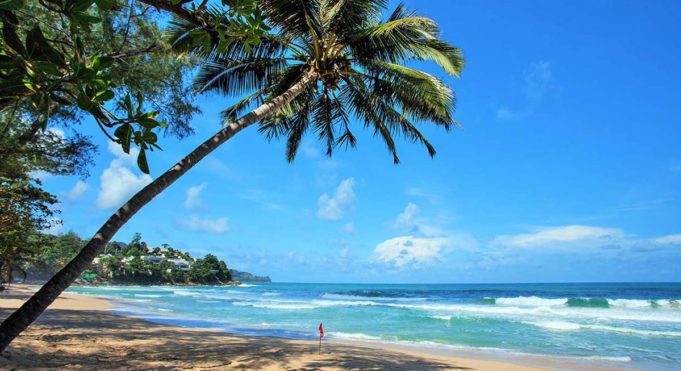Over two years down the track and the results of Thailand’s ’great beach purge’ of 2014 can be seen in full view. Around the country there has been a massive clean up of the popular beach areas. Some of the more popular resort locations were becoming utterly unsustainable with row upon row of sun lounges and tatty beach umbrellas lining the once-pristine foreshores. Add to this the constant interruptions of beach vendors peddling their trinkets and souvenirs.
In Phuket the situation was so dire, pre-coup, that, as the tide went out another row would be added to the three or four existing rows of ubiquitous plastic furniture. And as the tide came rolling back in the rows would magically disappear. Bottom-line: it became difficult to see much of Thailand’s premier beaches as they vanished under a sea of second-hand beach furniture.
That changed swiftly after the new Government swept to power amid political unrest in May 2014. At last there would be peace, order and a few surprises. The authorities rolled into town, arrested a few cronies and declared that there would be no commercial activity on the beaches. Now, the administration of this edict has been a bit lumpy but the result, after more than two years, is much better beaches. You can imagine the pristine beaches were the reason people came to Thailand 30 years ago in its fledgling tourist heyday. Tourists can now enjoy a lot of that original adoration of old-style Thai beach culture.
The beach purge was most apparent at Phuket’s Surin Beach. Once visited by His Majesties the King and Queen of Thailand, Surin Beach became a pyramid scheme of fake beach leases, greedy locals, opportunistic (and slightly naive) foreigners plus some local officials happy to turn a blind eye to the whole game.
The resulting 40 establishments – an up-market mix of beach clubs, restaurants and bars – were popular with locals (for employment), expats (for a regular feed) and tourists (who thought it was a wonderland of Thai beach culture). Of course it was built on false promises, dodgy ‘leases’ and a lot of winks and nudges. It all eventually came crashing down, literally, when a fleet of big yellow machines rolled in one morning and evaporated two decades of illegal beach encroachment in approximately two hours.
Surin Beach is now Thailand’s poster beach, still with a few remnants of its commercial past but devoid of any of the buildings from the past ten years. The same can be said for a lot of Thailand’s other beach assets. Cleaner, better, uncluttered beaches returned to the people of Thailand and those who visit their shores.
Pattaya, Phuket, Koh Samui, Hua Hin and the new emerging beach zones have a better future now that much of the commercial activities have been swept away. There are still some localised problems with the infamous jet-ski rentals but the weight of evidence is that Thailand is better off with clearer, less commercial beaches.
For property buyers all this purging of the foreshores means better views, better controls and better futures for the shorelines around the Kingdom.
Somewhere, in a huge building there must be 10s of thousands of tatty white sun lounges that are unlikely to ever see a beach again. And that’s a good thing.





























